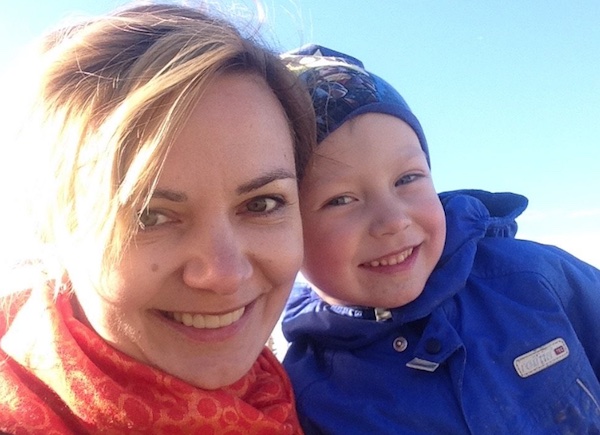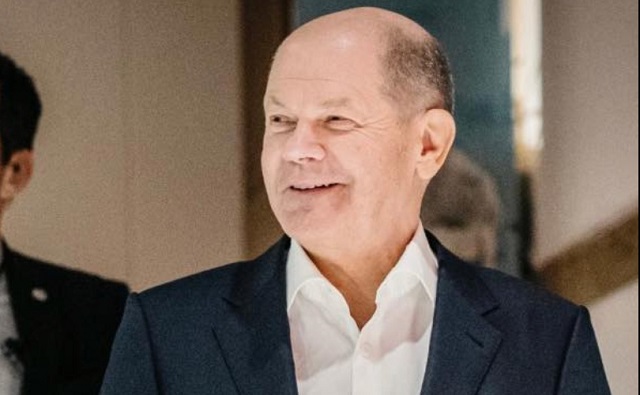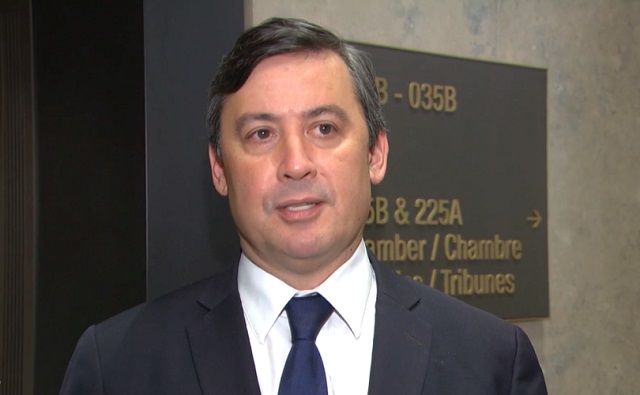Alberta
Alberta Engineering Technology Professionals paving the way for refugees to find work in their field

News Release from the Association of Science and Engineering Technology Professionals of Alberta
ASET waives fees for refugees, offers fast route into tech careers locally
Through two initiatives, the Association of Science and Engineering Technology Professionals of Alberta (ASET) is making it easier for engineering technology professionals who are refugees from war-torn countries to earn their professional designations and find work in their field without having to return to school.
Effective immediately, ASET is waiving all application fees for refugees seeking to become members and attain their designations (e.g. certified engineering technologist). These fees, which include the application fee, prior learning assessment and recognition (PLAR) fee, ASET professional practice exam fee, and certification exam fee, can cost up to almost $1,000 per member over time. ASET recognizes that many applicants who are refugees from countries in crisis are also suffering significant economic hardship.
ASET’s fee waiver for refugees reflects its overall commitment to welcoming and supporting newcomers. In 2016, it launched a program designed to offer foreign-trained and other engineering technology professionals a faster route to establishing careers: the competency-based assessment program. The first of its kind in Canada and pioneered by ASET, it enables them to gain purchase in their career fields without having to return to school full-time. ASET eliminated the Canadian work experience requirement, making it one of the few regulatory bodies in Alberta to do this.
After Russia invaded Crimea in 2014, single mother Mila Wagner made the difficult decision to leave her home and job in Ukraine and move to Alberta two years later with her three-year-old son, Nikita. When she arrived in Alberta in 2016, she discovered that her multiple engineering technology-related degrees from Ukraine did not translate in the Canadian employment market and no one would hire her. She had to take on menial work until she was able to earn a civil engineering technology diploma at Lethbridge College.
Had she known about ASET’s competency-based assessment program, she could have been fast-tracked into earning an ASET designation – subject to having the required application documentation – and ultimately working in a career-related job in half to a quarter of the time required to complete an additional engineering technology diploma in Canada.
While she praises the excellent civil engineering technology education that she received at Lethbridge College where the instructors are top-notch and go above and beyond to help their students, she wishes she’d known about the ASET program.

Mila and Nikita celebrating a milestone in their new home town
“If I could have been accredited through ASET from my previous schooling in Ukraine, I could have been positioned in a job in my field sooner,” said Wagner, now an ASET member. “I think the competency-based assessment program combined with application fee waiver will be a game changer for refugees from Ukraine and other countries.”
“With our application fee waiver for refugees now in place and our competency-based assessment program already established and proven to help newcomers, ASET is making it easier than ever for refugees with tech backgrounds to get on the career paths for which they were educated in their home countries,” said ASET CEO Barry Cavanaugh. “Alberta and Canada as a whole need more people with the technical knowledge and experience to contribute to our province and nation and we value what these newcomers bring.”

ASET CEO Barry Cavanaugh
How the competency-based assessment program works:
Foreign-trained professionals who have passed an ASET-approved English language proficiency test and are seeking certification and an ASET certified engineering technologist (CET) or certified technician designation (CTech) now undergo a competency assessment. This includes submitting academic credentials, work experience documents – such as CV, competency summary, job descriptions, and references – confirming their work experience locally and abroad. They then complete a professional practice exam that tests them on Alberta-specific legislation and professional ethics, and the ASET certification exam (if applying for the CET designation) that tests them on their technical competency.
In some cases, foreign-trained professionals are not able to access academic documents. For example, if they are refugees from a war zone, their academic institution may have been destroyed. ASET’s PLAR model allows foreign-trained professionals who are unable to produce academic transcripts to complete a work portfolio to demonstrate equivalency to the academic requirements. Skills and knowledge obtained outside of an academic program are evaluated for the purpose of recognizing professional competence, and certification exams test for the educational standard.

Happy times ahead!
About ASET
ASET is the professional self-regulatory organization for engineering technologists and technicians in Alberta. ASET currently represents over 16,000 members, including full-time technology students, recent graduates and fully certified members in 21 disciplines and more than 120 occupations across a multitude of industries.
Alberta
Maxime Bernier says it’s ‘astounding’ Alberta is ‘pushing’ COVID boosters, tells Danielle Smith to stop it

From LifeSiteNews
The People’s Party of Canada leader tells the Alberta government: ‘It’s over! Get over it!’
People’s Party of Canada (PPC) leader Maxime Bernier said Alberta Premier Danielle Smith should tell provincial health bureaucrats to “back off” and stop “pushing” the mRNA COVID boosters on “anyone,” considering a recent announcement from health officials recommending yet more COVID shots.
“I find it astounding that Alberta public health bureaucrats are still pushing the mRNA boosters on anyone, and especially on children who have never been at risk, almost two years after almost all other pandemic measures have been ended,” Bernier told LifeSiteNews.
“Danielle Smith’s government should tell its bureaucrats to back off and stop stupidly feeding a needless sense of fear surrounding the virus that lingers among certain groups of society. It’s over! Get over it!”
Earlier this week, officials from Alberta Health Services (AHS), whose chief medical officer throughout the COVID crisis, Dr. Deena Hinshaw, was fired by Smith in 2022, updated its COVID booster recommendations to every “three months” starting at babies only six months old.
“Starting April 15, 2024, select groups of Albertans at high risk of severe outcomes from COVID-19 will be eligible for an additional dose,” the AHS noted on its website.
AHS health officials still assert that all “vaccines are safe, effective and save lives,” and that one can get a COVID shot at the same time as a flu vaccine.
On April 16, Bernier commented on the AHS’s new COVID jab guideline changes on X, in which he asked, “What’s going on in Alberta with their “conservative” government?
Bernier, who was a firm opponent of both the COVID shots and mandates, told LifeSiteNews that AHS’s recommendations are puzzling, given “more and more scientific evidence is emerging of dangerous side effects when injecting from these experimental substances.”
“Even though these are only recommendations, and nothing is mandated, this ‘guidance’ by government agencies influences people’s decisions,” Bernier said.
AHS claims that the booster shots “are anticipated to provide a good immune response against currently circulating strains.”
Those under 18 still need written or verbal consent from their parents to get the shot.
AHS is recommending booster jabs for seniors, healthcare workers as well as those with underlying medical conditions. They also recommend that First Nations people and “members of racialized and other equity-denied communities,” as well as pregnant women get the shots as well.
The COVID shots were heavily promoted by the federal government as well as all provincial governments in Canada, with the Alberta government under former Premier Jason Kenney being no exception.
The mRNA shots themselves have been linked to a multitude of negative and often severe side effects in children.
Danielle Smith took over from Kenney as leader of the United Conservative Party (UCP) on October 11, 2022, after winning the leadership. Kenney was ousted due to low approval ratings and for reneging on promises not to lock Alberta down as well as enacting a vaccine passport. Smith was opposed to COVID jab mandates.
Bernier: It’s ‘deplorable’ some provinces still mandate COVID shot for Heathcare workers
While Alberta does not mandate the COVID shots for healthcare workers anymore, British Columbia still does as well as some health regions in Ontario, a fact that Bernier called “deplorable.”
“I find it deplorable that nurses, doctors and other healthcare workers in B.C. and Ontario still have to be vaccinated to work in hospitals and that thousands of them have not been reintegrated,” Bernier told LifeSiteNews.
“The authoritarian covid measures adopted by all governments have been traumatic enough for millions of Canadians. All of them should be lifted.”
Last year, LifeSiteNews reported on how the details of the Canadian federal government’s COVID-19 vaccine contract with Pfizer for millions of doses of the mRNA-based experimental shots were recently disclosed after being hidden for over three years.
The contract with Pfizer shows the government agreed to accept the unknown long-term safety and efficacy of the shots. The details of the Pfizer contract do not disclose how much the government spent on the jabs.
A bill introduced by Conservative Party leader Pierre Poilievre that would have given Canadians back their “bodily autonomy” by banning future jab mandates was voted down last year after Trudeau’s Liberals and other parties rejected it.
Adverse effects from the first round of COVID shots have resulted in a growing number of Canadians filing for financial compensation over injuries from the jabs via the federal Vaccine Injury Program (VISP).
VISP has already paid well over $11 million to those injured by COVID injections.
Earlier this year, LifeSiteNews reported on how officials from Health Canada have admitted that there is “residual plasmid DNA” in the COVID shots after a Conservative MP asked the agency through an official information request if the DNA fragments were in the shots.
As for Bernier, earlier this month he called out Poilievre for dodging a question regarding Canada’s participation in the United Nations’ pro-abortion Paris Climate Agreement.
Throughout most of the COVID crisis, Canadians from coast to coast were faced with COVID mandates, including jab dictates, put in place by both the provincial and federal governments.
After much pushback, thanks to the Freedom Convoy, most provincial mandates were eliminated by the summer of 2022.
There are currently multiple ongoing class-action lawsuits filed by Canadians adversely affected by COVID mandates.
Alberta
Canada’s advantage as the world’s demand for plastic continues to grow

From the Canadian Energy Centre
By Will Gibson
‘The demand for plastics reflects how essential they are in our lives’
From the clothes on your back to the containers for household products to the pipes and insulation in your home, plastics are interwoven into the fabric of day-to-day life for most Canadians.
And that reliance is projected to grow both in Canada and around the world in the next three decades
The Global Plastics Outlook, published by the Paris-based Organization for Economic Co-operation and Development (OECD), forecasts the use of plastics globally will nearly triple by 2060, driven by economic and population growth.
The use of plastics is projected to double in OECD countries like Canada, the United States and European nations, but the largest increases will take place in Asia and Africa.
“The demand for plastics reflects how essential they are in our lives, whether it is packaging, textiles, building materials or medical equipment,” says Christa Seaman, vice-president, plastics with the Chemical Industry Association of Canada (CIAC), which represents Canada’s plastics producers.
She says as countries look to meet climate and sustainability goals, demand for plastic will grow.
“Plastics in the market today demonstrate their value to our society. Plastics are used to make critical components for solar panels and wind turbines. But they also can play a role in reducing weight in transportation or in ensuring goods that are transported have less weight in their packaging or in their products.”
Canada produces about $35 billion worth of plastic resin and plastic products per year, or over five per cent of Canadian manufacturing sales, according to a 2019 report published by the federal government.
Seaman says Canadian plastic producers have competitive advantages that position them to grow as demand rises at home and abroad. In Alberta, a key opportunity is the abundant supply of natural gas used to make plastic resin.
“As industry and consumer expectations shift for production to reduce emissions, Canada, and particularly Alberta, are extremely well placed to meet increased demand thanks to its supply of low-carbon feedstock. Going forward, production with less emissions is going to be important for companies,” Seaman says.
“You can see that with Dow Chemical’s decision to spend $8.8 billion on a net zero facility in Alberta.”
While modern life would not be possible without plastics, the CIAC says there needs to be better post-use management of plastic products including advanced recycling, or a so-called “circular economy” where plastics are seen as a resource or feedstock for new products, not a waste.
Some companies have already started making significant investments to generate recyclable plastics.
For example, Inter Pipeline Ltd.’s $4.3 billion Heartland Petrochemical Complex near Edmonton started operating in 2023. It produces a recyclable plastic called polypropylene from propane, with 65 per cent lower emissions than the global average thanks to the facility’s integrated design.
Achieving a circular economy – where 90 per cent of post-consumer plastic waste is diverted or recycled – would benefit Canada’s economy, according to the CIAC.
A Deloitte study, commissioned by Environment & Climate Change Canada, estimated diverting or reusing 90 per cent of post-consumer plastic waste by 2030 will save $500 million annually while creating 42,000 direct and indirect jobs. It would also cut Canada’s annual CO2 emissions by 1.8 megatonnes.
Right now, about 85 per cent of plastics end up in Canada’s landfills. To reach the 90 per cent diversion rate, Seaman says Canada must improve its infrastructure to collect and process the plastic waste currently being landfilled.
But she also says the industry rather than municipalities need to take responsibility for recycling plastic waste.
“This concept is referred to as extended producer responsibility. Municipalities have the responsibility for managing recycling within a waste management system. Given the competing costs and priorities, they don’t have the incentive to invest into recycling infrastructure when landfill space was the most cost-effective solution for them,” she says.
“Putting that responsibility on the producers who put the products on the market makes the most sense…The industry is adapting, and we hope government policy will recognize this opportunity for Canada to meet our climate goals while growing our economy.”
-

 International16 hours ago
International16 hours agoGerman parliament passes law allowing minors to change their legal gender once a year
-

 International1 day ago
International1 day agoTelegram founder tells Tucker Carlson that US intel agents tried to spy on user messages
-

 Opinion18 hours ago
Opinion18 hours agoTransgender ideology has enabled people to ‘identify’ as amputees
-

 Business23 hours ago
Business23 hours agoCanada’s economy has stagnated despite Ottawa’s spin
-

 Business1 day ago
Business1 day agoNew capital gains hike won’t work as claimed but will harm the economy
-

 Agriculture2 days ago
Agriculture2 days agoBill C-282, now in the Senate, risks holding back other economic sectors and further burdening consumers
-

 Alberta2 days ago
Alberta2 days agoDanielle Smith warns arsonists who start wildfires in Alberta that they will be held accountable
-

 Economy1 day ago
Economy1 day agoExtreme Weather and Climate Change







